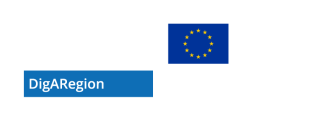
DigARegion
Policy objective: ISO 1 - A better cooperation governance
Typology: Standard project
The proposed project addresses a significant common challenge, the lack of cross-border accessibility, especially for vulnerable groups of various identities (e.g., the disabled, the blind and visually impaired, the deaf and hard of hearing, etc.). In recent years, the pace of digitalization has increased significantly. When implemented correctly, digitalization should enhance lives, streamline processes, and make information and services more accessible, especially those that were previously hard to reach. However, due to the often inconsistent observance of accessibility requirements, this disparity has grown even more pronounced. Addressing this challenge is crucial for the entire program area and aligns closely with the requirements of the European Union and micro[1]regional strategies.
- The primary goal of the DigARegion project is to simplify the design and execution of measures that guarantee comprehensive accessibility. Comprehensive accessibility implies that spaces, information, and services should be designed such that everyone can use them without any potential barriers.
- Through increased engagement and inclusion of local entities, the aim is to cater to the digital accessibility needs of the broader community.
- The innovative nature of the project is evident in its comprehensive approach. This includes a cross-border comparative analysis, the creation of an automated website accessibility checker, the promotion of an accessible culture, and the education and engagement of experts in digital accessibility.
- The project introduces strategies for enhancing digital accessibility across border regions, potentially serving as a model for other areas. The primary mission of this project is to meet accessibility needs, foster collaboration among various stakeholders, and eliminate barriers in this domain.
- Direct outcome of the project: Development of a strategy with guidelines aimed at bridging the digital divide amongst various stakeholders. This will be informed by an exhaustive comparative analysis of the state of affairs on both sides of the border. This strategy's end goal is to diminish digital disparities and bolster collaboration in the cross-border region.
- Direct outcome of the project: This pertains to institutions working on amplifying digital accessibility across the border. Within the project's purview, a Digital Accessibility Center will be inaugurated. This shared accessibility portal hinges on robust cooperation between cross-border organizations that are crafting guidelines to diminish the digital divide. The portal will feature pivotal guidelines, improvement suggestions, and examples of best practices that will guide institutions toward greater accessibility. A minimum of # 10 institutions will be involved in the portal's development. Post the project's culmination, these organizations are anticipated to perpetuate cross-border collaborations, solidifying connections and sharing best practices in the realm of digital accessibility.
- Direct outcome of the project: This focuses on individuals committed to raising awareness and fortifying skills in digital accessibility. Training and expert-led conferences will be organized to capacitate the target groups, enabling them to transfer knowledge and integrate accessibility solutions. Our ambition is for the border region to host, post-project, at least 24 experts out of roughly # 150 participants, who possess a nuanced understanding of accessibility standards and the intricacies involved in the development or overhaul of websites.
